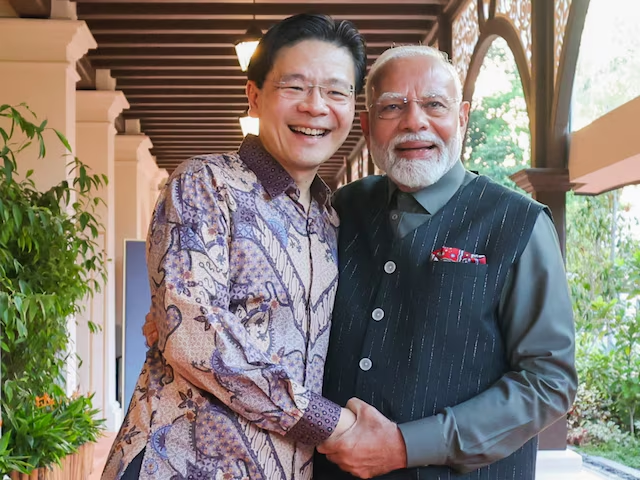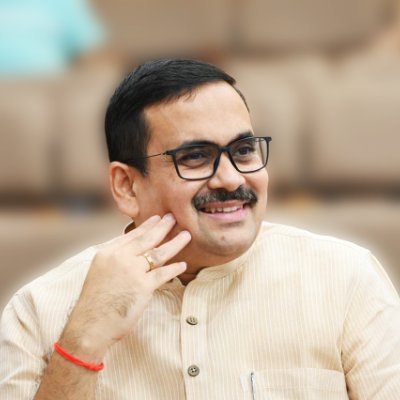As Prime Minister Narendra Modi concludes another landmark visit to Singapore, one is reminded of recent observations by Singapore’s diplomat-emeritus, Kishore Mahbubani. In a significant remark, Mahbubani asked, “How many leaders in the world can comfortably visit both Russia and Ukraine and be warmly received by both countries? Very few. The fact that Prime Minister Modi can do that is a sign of how India has arrived as a major geopolitical actor.”
Mahbubani also spoke of India being the third most powerful country in the world, after the United States and China, and called for New Delhi’s entry into the United Nations Security Council (UNSC) and a more effective role in the global body.
Mahbubani called for the United Kingdom to give up its seat on the UNSC in favor of India. That India is now most well-poised for an entrée in the UNSC is undeniable, that the UN will graduate to its next level of relevance only with India’s entry in the UNSC is a fact that most members, willingly or grudgingly, admit. That PM Modi visited both Russia and Ukraine, spoke his mind out, provided alternatives while furthering India’s objectives and imperatives, makes him stand apart and in a league of his own. It has also projected India as a power that is conscious of its role in a rapidly reconfiguring world.
No other world leader in recent times has articulated, delineated, and envisioned the ‘Voice of the Global South’ narrative as Prime Minister Modi has. Not only has he shaped it and provided a global platform for its initial articulation, such as the G20 in Delhi, but he has also led from the front in the delineation of an agenda, a roadmap, and a target that are both pragmatic and futuristic.
India’s emergence as a ‘Viswa-Bandhu’ (Friend of the World) is a narrative that is becoming increasingly relevant and contextual. Despite some hard-boiled strategic experts emerging as naysayers, the reality is that a section of the world looks to India for positive partnership and affirmative action.
Prime Minister Modi’s visits to Brunei and Singapore represent a significant step in advancing India’s ‘Act-East’ vision and enhancing its role and presence in the Indo-Pacific region. Among his many firsts over the past decade, PM Modi became the first Indian Prime Minister to visit Brunei since relations were established four decades ago.
In Singapore, PM Modi reminded members of the business community in his interaction with them that this was the first time, since 1962, that an Indian government was elected to power for a third consecutive term through the largest democratic exercise in the world, which was the Indian general election. These penetrative words described India’s vibrant democratic fabric and her continuing aspiration to make it more resilient, responsive and unique as a model and a journey.
The waters and currents of the Indo-Pacific were navigated for centuries by people from civilisational India and this region. Where once exchange was done in commodities, spices, exquisite cloth, craft, philosophy, knowledge and ideas, today that same uninterrupted flow and exchange is seeing discussion on sharing of technology, AI, semiconductors, airports, health and more. The link remains, the flow is enhanced with the exchange shifting to another dimension and horizon.
Through millennia this exchange has continued despite vicissitudes of subjection. Hiatuses, if any, have always been a brief interlude, only to be resumed in another form and dimension.
Of civilisational India’s exchange with this part of the world, iconic linguist and scholar-philosopher, Suniti Kumar Chatterji, who travelled these regions extensively in an earlier era, writes, “Wherever it went, Indian philosophy and culture came not to destroy, but to fulfil. It came like the life-giving rain, not like the burning wind or the killing blight.”
For Chatterji, Indian civilisation was “broad-based on a spirit of harmony and inclusiveness which does not regard anything human as essentially alien or repugnant either to man or to God”. It was, he writes, the “sense of kinship with humanity as a whole — Vasudhaiva Kutumbakam — and the yearning for the happiness and salvation of all men’ which formed a ‘great impetus and inspiration to send forth’ messengers who carried forth the ‘message of the Rshis and the Jinas into distant and inaccessible lands”.
At a grand reception accorded to him in Singapore, in July 1927, Gurudev Rabindranath Tagore, who was accompanied, among others, by Suniti Kumar Chatterji, expressed much the same emotions.
In an inspiring response to a special address by the leaders and eminent members of the Indian and other communities in Singapore, Tagore said that he believed that it is the “best characteristic of an Indian that he can identify himself with the whole world…through the philosophy which he has been initiated into from his very childhood. I am sure that the philosophy of the Upanishads has been of immense help to me to come into intimate and close contact with the nations belonging to other parts of the world. That is the meaning of the word, ‘Visva-Bharati’. I have not come to face you, but to ask you to face the world with me. I have not come to speak to you but to ask you to speak with me to the world”.
PM Modi’s announcement that India would establish the Thiruvalluvar Cultural Centre in Singapore is, in a sense, one of the crowning aspects of this visit. It demonstrates his commitment to also keep rejuvenating and replenishing the cultural and civilisational dimension of the relationship amongst the two nations, and to make that as one of the central pillars of India’s ‘Act-East’ partnership. For India-Singapore relations, this has a special historic significance.
Decades ago, Suniti Kumar Chatterji spoke of India’s role as ‘kalyāna-mitra’, a role in which she “can serve humanity in her old way once more”, as “its friend and fellow in the quest of the highest good”. Interestingly, today, PM Modi increasingly refers to India’s role and presence as ‘viswa-bandhu’ in a quest for the highest global good.
There is no contradistinction in PM Modi’s vision of India’s interaction and engagement with the world, by being ‘viswa-bandhu’, ‘kalyana-mitra’ and a ‘major geopolitical actor’. India, led by Modi, aspires to and is capable of emerging as all of these to the world.
(The views expressed are the author's own and do not necessarily reflect the position of the organisation)


